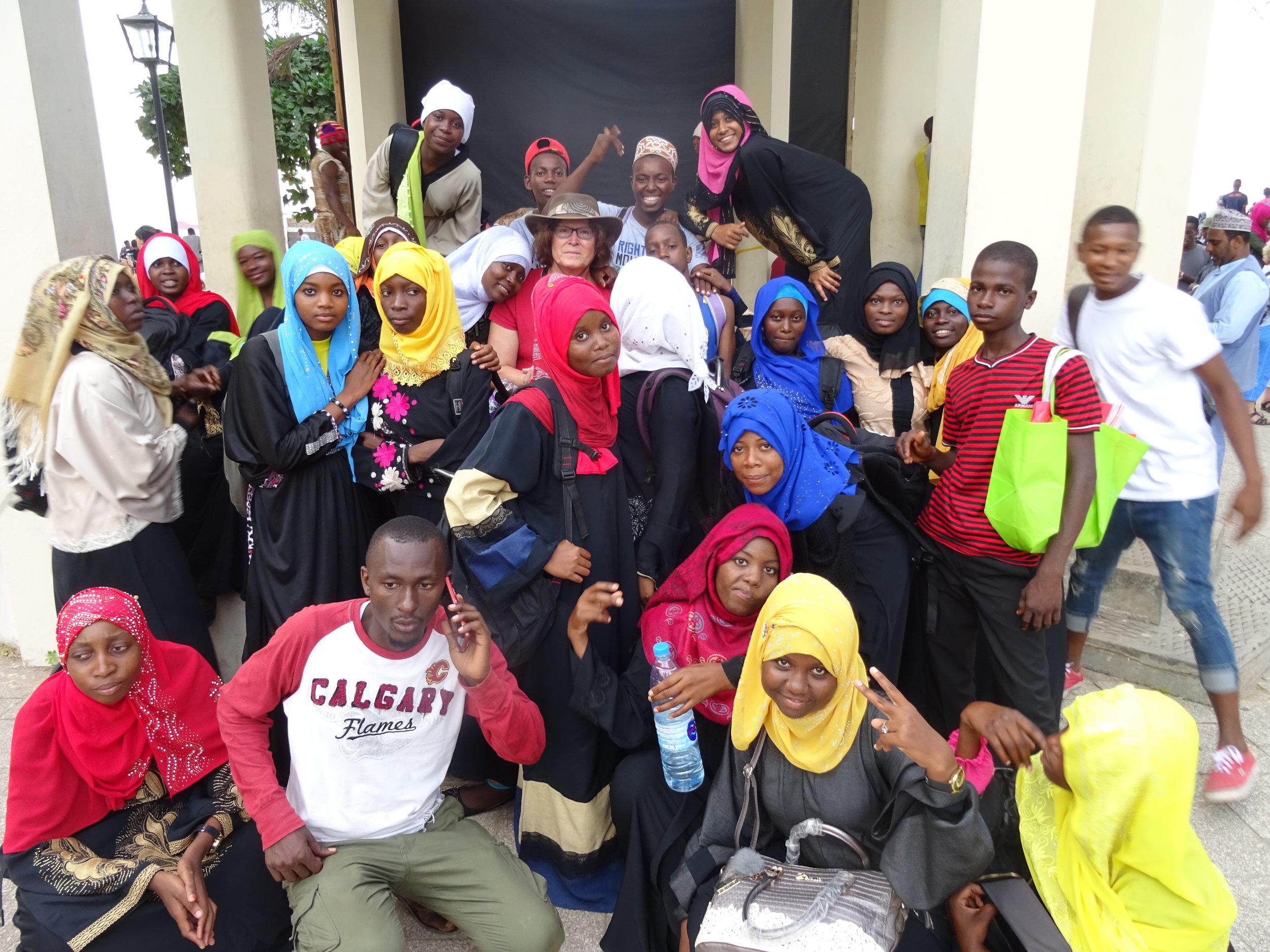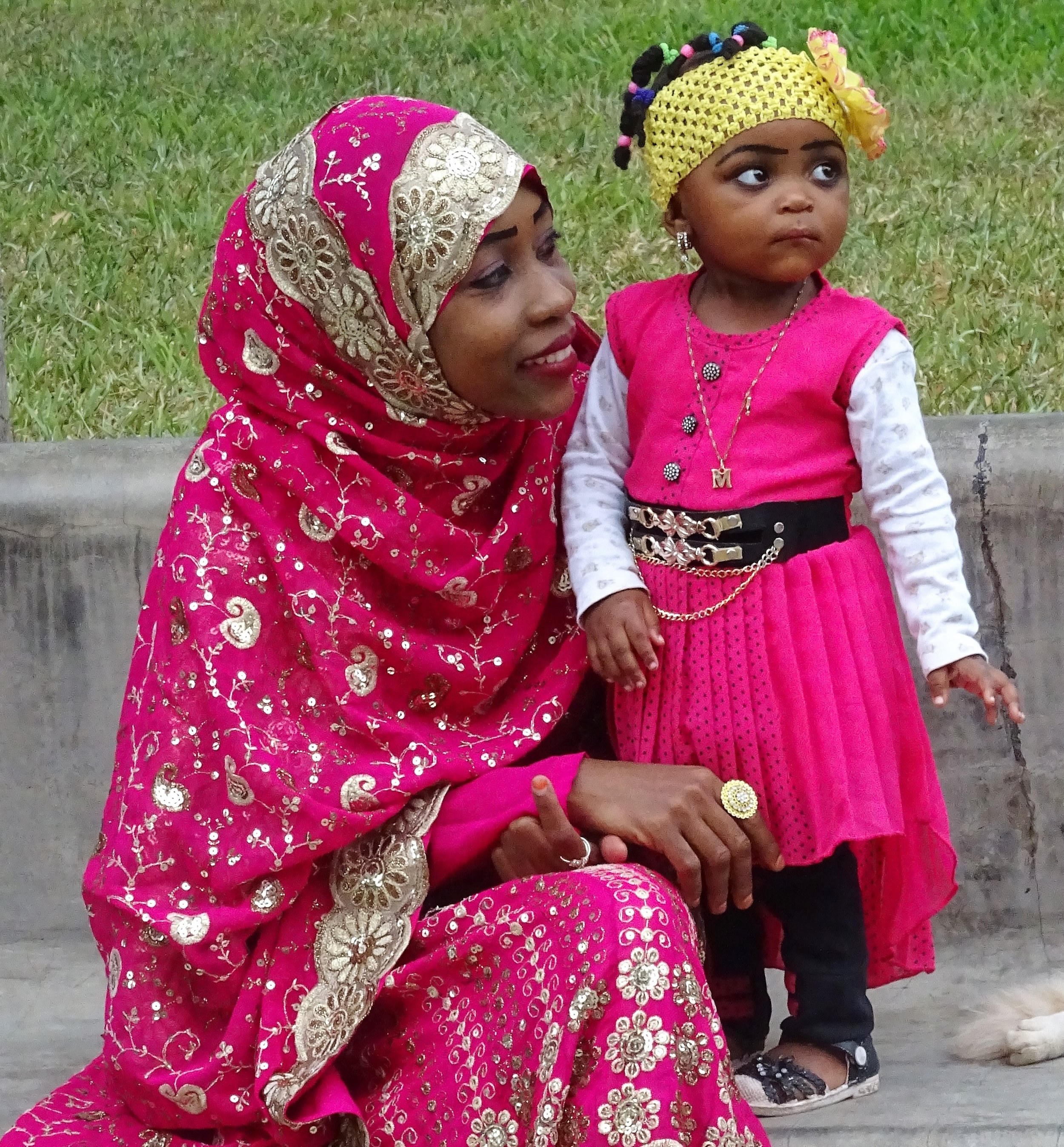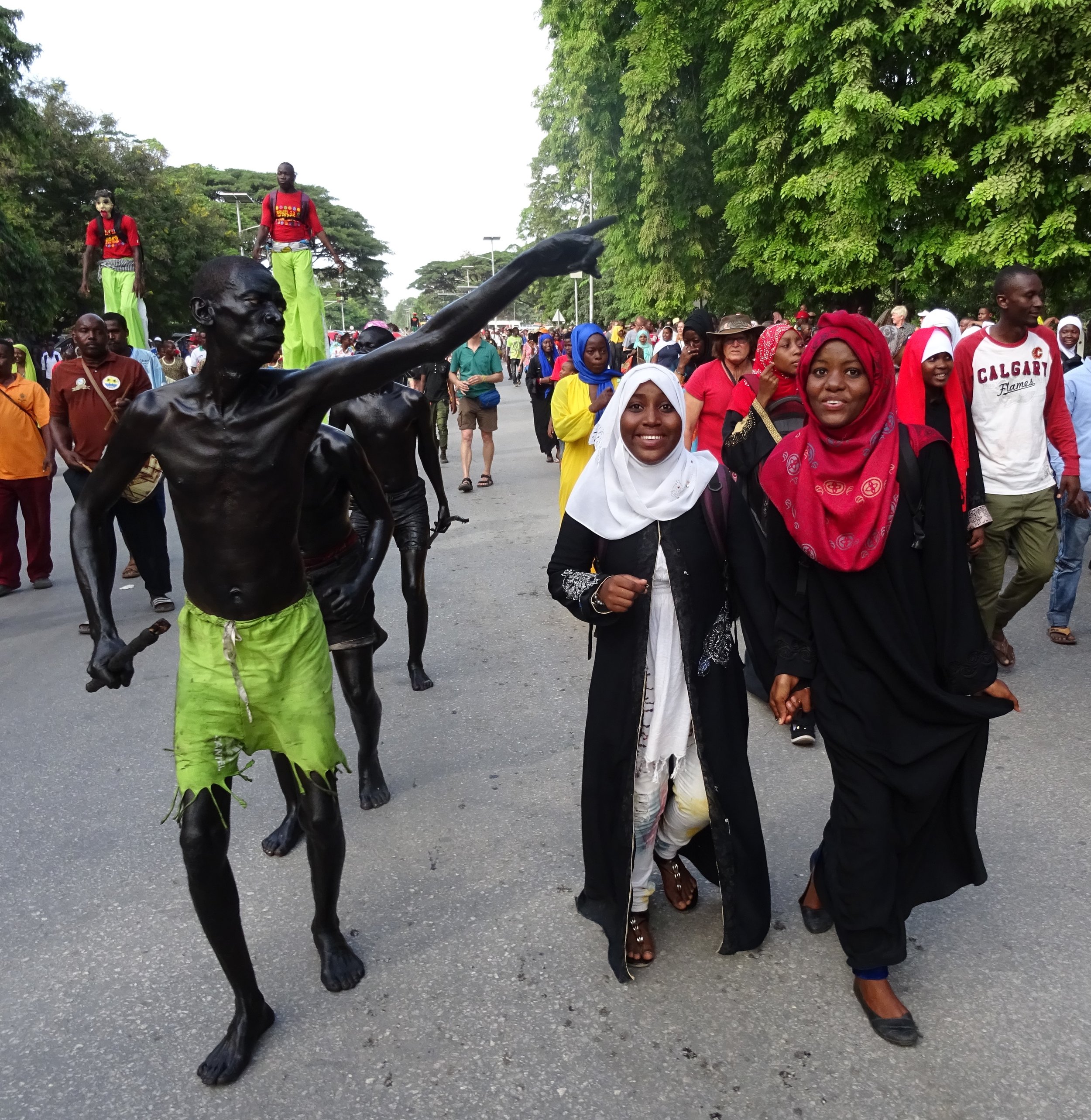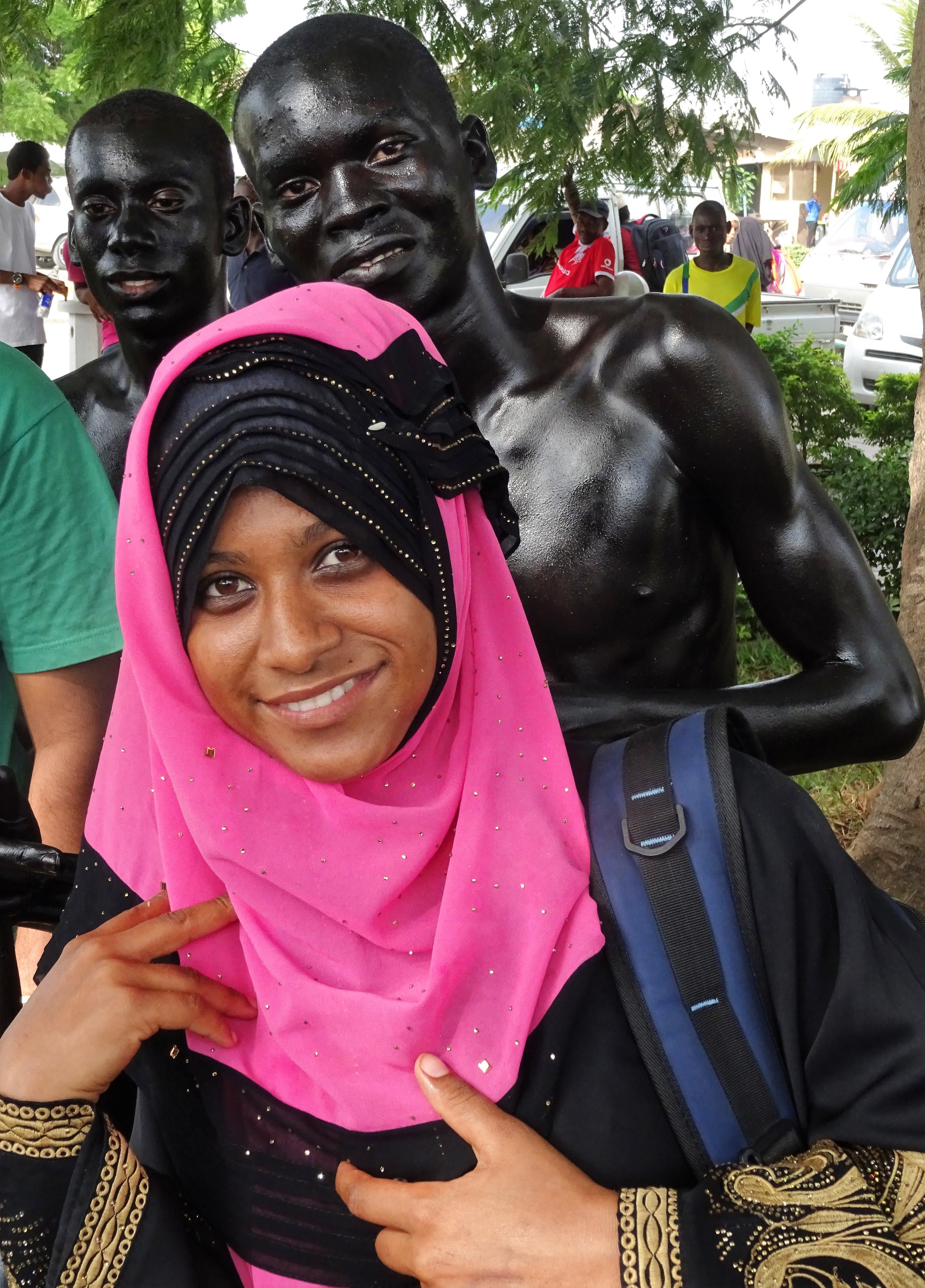The main educational challenges in Zanzibar are due to poor resources. Children can’t focus in class because they’re hungry and there are 60-100 students in every class. There are few text books and the teachers have many demands on their time. If a teacher is absent no-one else will cover the class. Additional problems are caused by English being the medium of education. Subjects such as maths, ICT, geography and science are taught in English, but the teachers are far from fluent. When we first visited Zanzibar in November 2015, schools were shut for 6 weeks due to Presidential elections. In Unguja Ukuu, a small fishing village, with the help of the school committee, we set up daily English classes to improve the English language skills of the primary school teachers. When school reconvened the teachers were too busy to attend classes after school – they look after large families and grow crops to supplement the poor salaries. So, instead we set up an after school club to teach about 25% of the children preparing for the Standard VI public exams and some of the secondary school students. But we were aware that it was the teachers that we needed to work with in order to see a major improvement in educational standards at the school in the long term.
Staff at our after school club felt that the primary school teachers were sceptical of our teaching methods. We don’t beat the children, there’s lively group work, watching films and even some singing (in Sadiq’s class). Our classrooms are very different to a traditional class where rote learning is the norm. To be fair, we have less than 30 in a class and the children have some rice and beans in their stomachs so hunger isn’t distracting them. However, the sustained public examination success of students attending Safari English Club has changed the dynamic with the teachers!
Standard VI exams take place in November. Last August, the primary school teachers started revision classes for all 126 students after school. We argued that this was too late to make any difference to results for the students who lacked basic English skills and could not catch up in 3 months. However, revision classes took priority and the children who’d been working hard in our after school club for the last 18 months were mixed up with children who had no interest in learning and were disruptive. However, the teachers rarely showed up and Safari English Club was left to cope with 126 hungry students who’d already had a long day at school. This year we want to avoid this problem and after discussions with the headmaster and the teachers, we’ve agreed that after school classes for all of Standard VI will start in March. For the first 5 months these classes will focus on English and Maths, but will also include subjects that are not usually taught in school such as study skills, exam technique and independent thinking.
Nine teachers are part of the programme which includes a month of preparation time. We are now one week into this project. The teachers have set the objectives – to encourage all Standard VI students to pass the public examination. Specifically to have 10 pass with distinction (in 2017 there were 5 in this category), to have 25 pass with grade C (in 2017 there were 17 in this category) and to make sure that there are no failures. Target setting and planning are not strong skills in Zanzibar. The concept of contingency planning is particularly alien. So the first week has been working on these concepts. The 126 students will be divided into 4 classes and will be streamed according to English Language skills. A modified version of the Standard VI English paper is going to be taken by all students this week and then the group will be streamed so that the more able students can coached appropriately.
In general numeracy is poor in Zanzibar; African children believe they can’t do Maths. In Unguja Ukuu, only 30 out of 126 students passed their Maths examination. The school performed particularly poorly in Maths, so the new after school classes will include one day a week working on basic skills, using the Kio Kits and other games to persuade students that Maths is both fun and relevant to their lives!
In the short term, the programme is going to add significantly to the cost of the project, but in the long term we hope that we can save money that we are currently spending on bringing expert teachers to the village. We will have to fund an additional 90 dinners every day and also we will provide a fund of 400,000 TZS to the teachers to cover their additional hours. So we’re hoping for lots of support!
I asked the question who needs to be informed about the new programme. The teachers replied that they should meet with the school committee, the parents and the other teachers (who aren’t part of the scheme) to explain what’s happening. However, I was amused that they totally forget that they should talk to the students!
We hope the students will benefit from taking a mock English exam this week as it will show what they need to do to be successful in November. We want them to do as well as possible in this first test so the English teachers are teaching them some of the key instructions and how to allocate time for each section of the exam before Wednesday. Then we work out a marking scheme and divide the papers between about 10 of us to assess the results.
Sauti za Busara has just finished...it’s a major annual African music festival held in The Old Fort in Stone Town. However, it’s mostly attended by visitors from Europe, other African countries and non-Tanzanians living in Zanzibar. There’s a reduced entry fee for locals, but it doesn’t attract them. In villages such as Unguja Ukuu, there’s no awareness that the festival is even taking place. We took a group of the older students to opening of the Festival, which was free (an important consideration). They hadn’t heard of the Festival before we announced that they’d be visiting the opening event. It started just outside Stone Town and ended up at the Forodhani Gardens where there was more free entertainment. Everyone enjoyed walking as part of the procession and everyone enjoyed seeing the photos when they were back in school.









